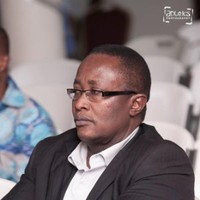
The constitutional role of the Council of State is to provide non-partisan guidance on national issues and offer sound, independent advice to the President on matters that impact the country’s leadership and governance. However, in recent times, the Council’s composition has become politically influenced, diminishing the effectiveness of its members within the governance structure.
Rather than offering critical advice, many Council members have simply endorsed political agendas that serve their own interests. This shift has undermined the Council’s purpose, particularly during the tenure of the New Patriotic Party (NPP) government, where party loyalists were appointed to the Council, weakening its advisory role to the executive.
Issaka Armon Kotei, a Local Government and Governance expert, shared this view during an interview on the Dekyee Mu Nsem morning show on Ahotor 92.3 FM, hosted by Citizen Kofi Owusu in Accra. He expressed concern about the politicized nature of the recent Council elections across the sixteen regions, where government officials and politically connected individuals have used their influence to sway the process, undermining the independence of the election.
Kotei also criticized former members of the Council of State for their failure to address pressing national issues, such as the LGBTQ+ bill and environmental threats, which have sparked significant public debate. While all other stakeholders voiced their opinions on these matters, past Council members remained silent, contributing to the worsening of these critical issues, such as the pollution of the country’s water sources.
Looking ahead, Alhaji Muhammed Mumuni, the newly elected Northern Regional representative on the Council of State, has called for an expanded role for the Council. He believes that the Council has the potential to contribute more meaningfully to national governance beyond its current advisory role to the President.
The Council of State, established under Articles 89 to 92 of Ghana’s 1992 Constitution, serves as an advisory body to the President on national matters. According to the Constitution, “There shall be a Council of State to counsel the President in the performance of his functions.”
While the Council plays an important role in shaping national policy, Mumuni believes that its full potential has not yet been realized. Speaking after his election, he stressed the need for the Council to engage more actively with other governmental bodies, particularly Parliament.
“After 30 years of governance, we have seen what the Council can do, but we have also seen that it has not been allowed to function to its full potential,” Mumuni said. “When the Council provides advice, it can either be accepted or rejected. To be fair to the President, advice should remain confidential, but we believe that the Council should engage more with other bodies like Parliament. For example, during the challenges with the hung Parliament, the Council played a role in fostering peace by meeting with the Speaker.”
Mumuni expressed his commitment to effectively representing the Northern Region, drawing from his extensive experience in governance. “I have served in many government roles, from Assembly Member to Presiding Member. I’ve also been part of two cabinets, under the Rawlings and Mills administrations, and even served as a running mate in the past. The Northern Region made the right choice in sending me to the Council of State,” he affirmed.
“I’m confident that I will contribute my experience and knowledge to enhance the work of the Council and assist the President in managing the country. The reset agenda is on, and I’m committed to supporting it,” Mumuni concluded.
Story by: Alexander Kukah

